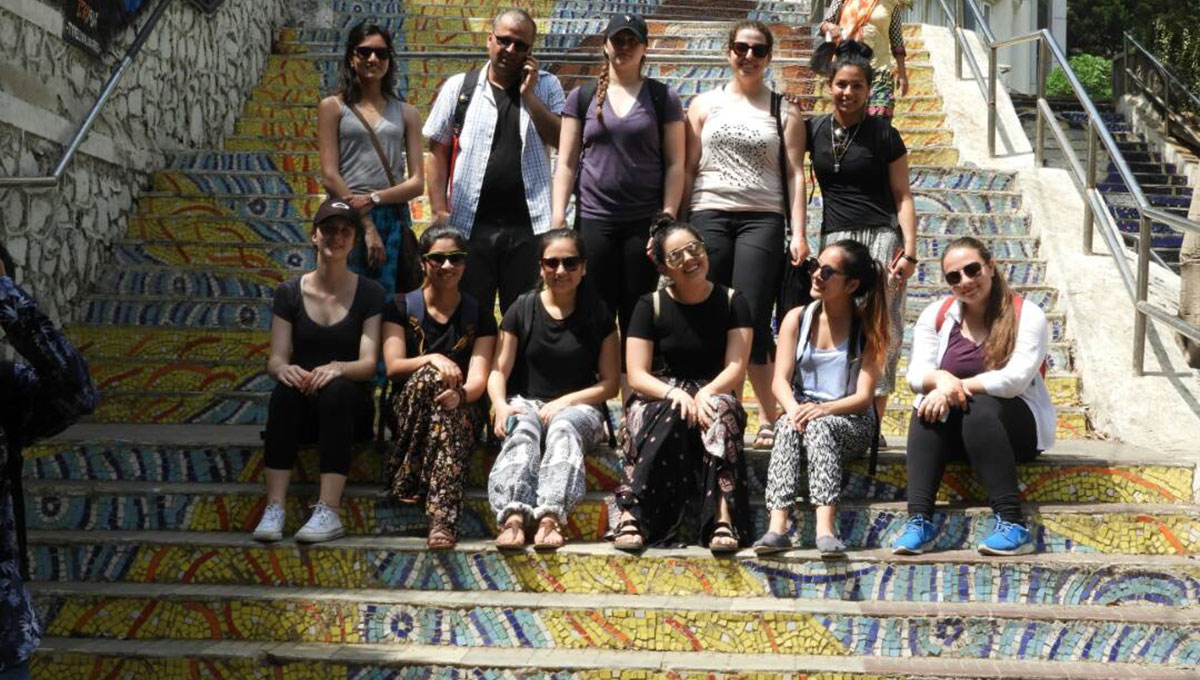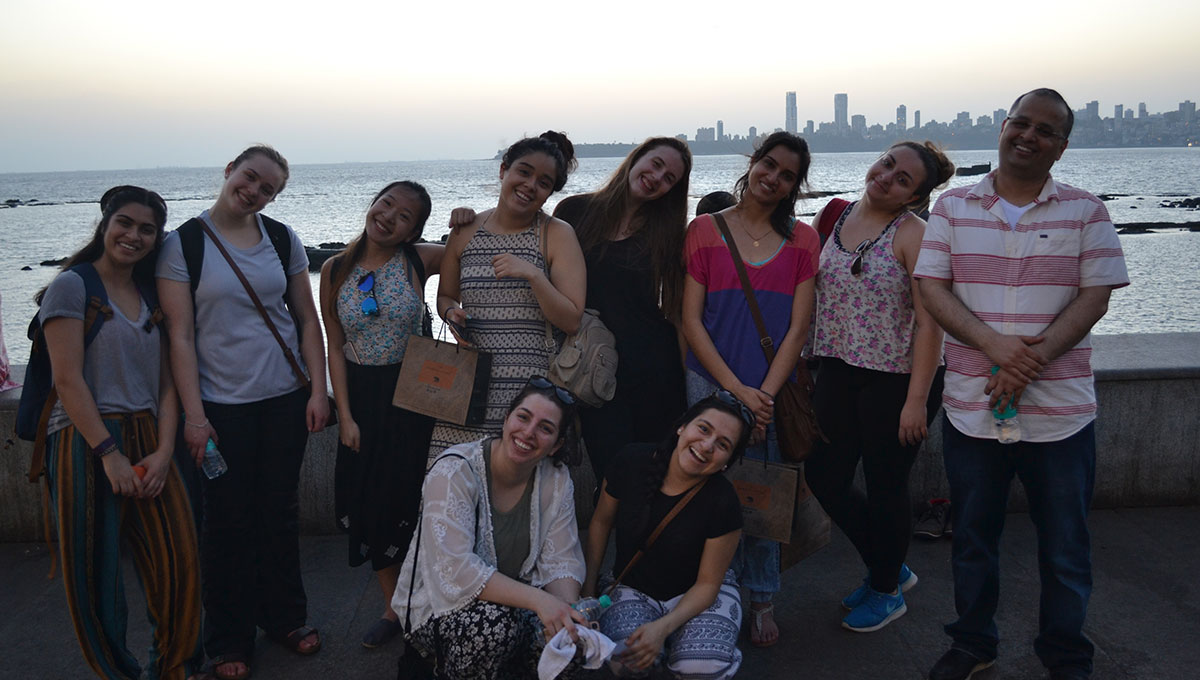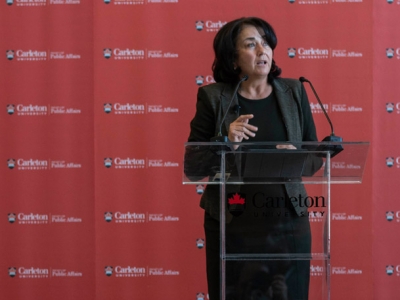By Dan Rubinstein
India has the fastest growing economy in the world. Within a few years, with two-thirds of its citizens under the age of 35, it will also have the youngest population on the planet.
The current generation of Indian university students — fluent in English and focused on entrepreneurship, technology and innovation — will increasingly compete with Canadians in the global market.
But if Canadian youth can develop a deeper understanding of India’s culture and economy, and get to know their peers on the other side of the planet, they will be able to tap into business, employment and partnership opportunities that reflect this new global reality.
That was the overarching goal of Carleton University’s inaugural India Study Tour organized by the university’s Canada-India Centre for Excellence (CICE) — a research and training centre that promotes bilateral ties between the two countries — which brought nine undergraduate students to Mumbai and Bengaluru for two weeks earlier this spring.
“I’ve read about India, but that’s no substitute for going and immersing yourself and experiencing it first-hand,” says Carleton student Kateryna Gazaryan, who recently finished her second year in the Bachelor of Global and International Studies program.
“Every year, the world is becoming more and more interconnected. People, information, everything moves around.
“To be successful, it’s important to have insight into different countries and cultures. You can’t just focus on the West.”
Gazaryan, who was born in the Ukraine, had never been to Asia before and is not concentrating on that part of the world in her studies. But she wanted to broaden her horizons and knows that evolving trade connections between Russia and India could have a direct link to her studies and future career.
“India’s economic and political influence is growing,” she says. “It’s important to pay attention.”
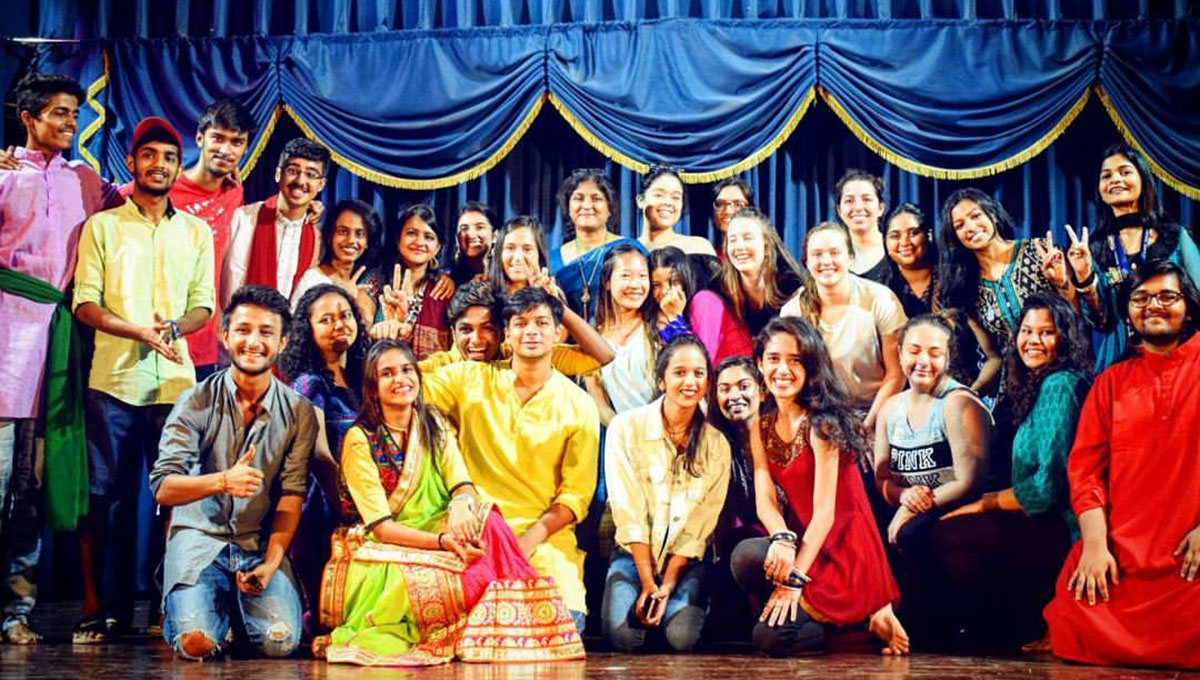
Balancing Academia with Culture and Commerce
The study tour featured classroom sessions with leading local professors on Indian society, culture, religion, history, politics, entrepreneurship, innovation and its economy and business environment at Jai Hind College in Mumbai, the country’s financial hub, and at the International School of Management Excellence in Bengaluru, India’s Silicon Valley.
Those sessions were typically followed by afternoon and evening trips to heritage sites and events, including the National Gallery of Modern Art, a Bollywood studio with filming underway, the ancient Elephanta Caves, and an Indian Premier League cricket match in a stadium packed with 50,000 spectators. There were also visits to the Art of Living International Center, where students were introduced to meditation and the importance of slowing down in a fast-paced society and, of course, the Taj Mahal.
There were industry visits as well, including stops at a Toyota engine plant and multinational cutting tool manufacturer TaeguTec in Bengaluru, and at the Securities and Exchange Board of India, the country’s financial regulator, in Mumbai.
“It was really interesting to see their work culture up close,” says Gazaryan. “The way things were organized at the factory, the respect that employees and management have for one another.”
Carina Zambrano-Cantor, who has finished her first year in Carleton’s Bachelor of International Business program, signed up for the tour because of its business focus. Most participants were in her field, with others coming from Carleton’s biotechnology, social work and software engineering programs.
Born and raised in Ottawa to parents from Colombia, Zambrano-Cantor is well-travelled and was surprised though not shocked by India’s crowded cities, poverty and economic disparity. “The trip really opened my mind to things that don’t exist in Canada,” she says, “and will help me put myself in other people’s shoes.”
Both women really enjoyed spending so much time with students from Jai Hind College, who chaperoned the group from Ottawa throughout their stay in Mumbai and displayed a strong sense of community.
Students from the two countries discovered many cross-cultural similarities, such as a desire to learn and travel, and the fact that they use the same social media apps and tools.
“The Indian students were so open and showed us so much hospitality,” says Zambrano-Cantor. “There was an instant connection. It was great to get their perspectives on the world, and to realize how much we have in common. Although, they do seem to be more driven than Canadian students.
“I think I need to step up my game,” she continues. “I’m a pretty motivated person, but now I know I could do more.”
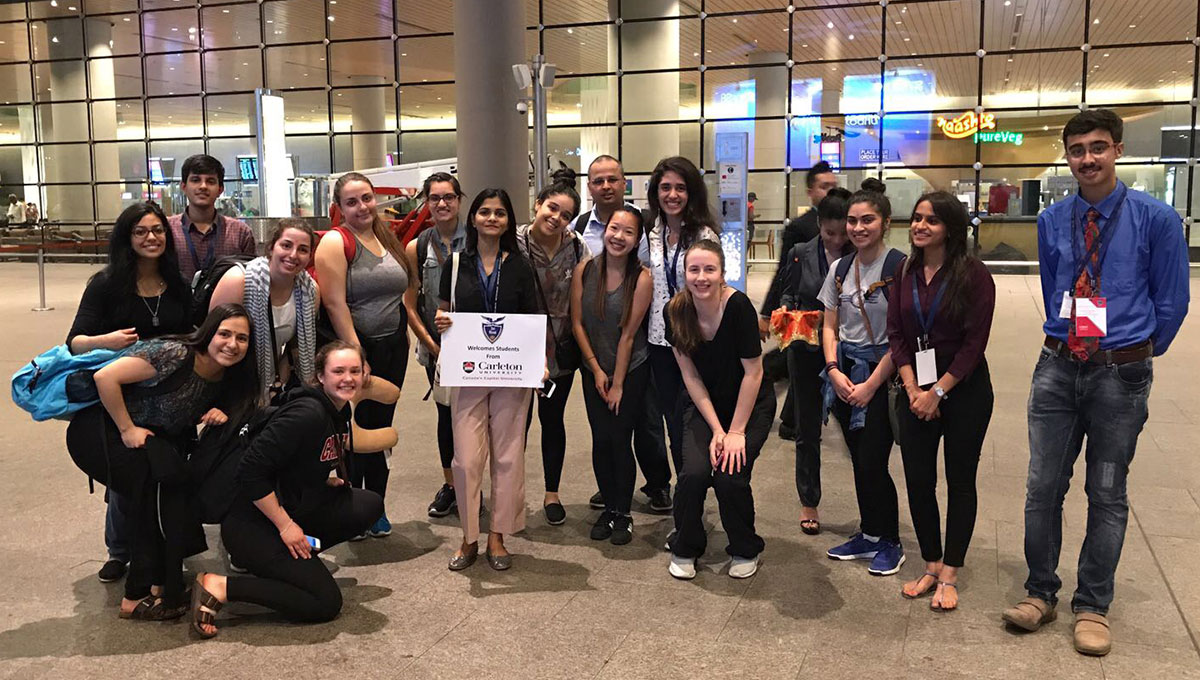
India Study Tour Enriches the Educational Experience
Study tours that combine an immersive cultural experience with academic sessions are an excellent opportunity for Carleton students to enrich their educational experience.
“There is an ongoing national conversation about how best to encourage post-secondary students to take advantage of learning opportunities abroad,” says Pauline Rankin, Associate Vice-President (Research and International). “Given that currently only three percent of Canadian university students participate in international educational experiences, study tours can help reverse this trend.”
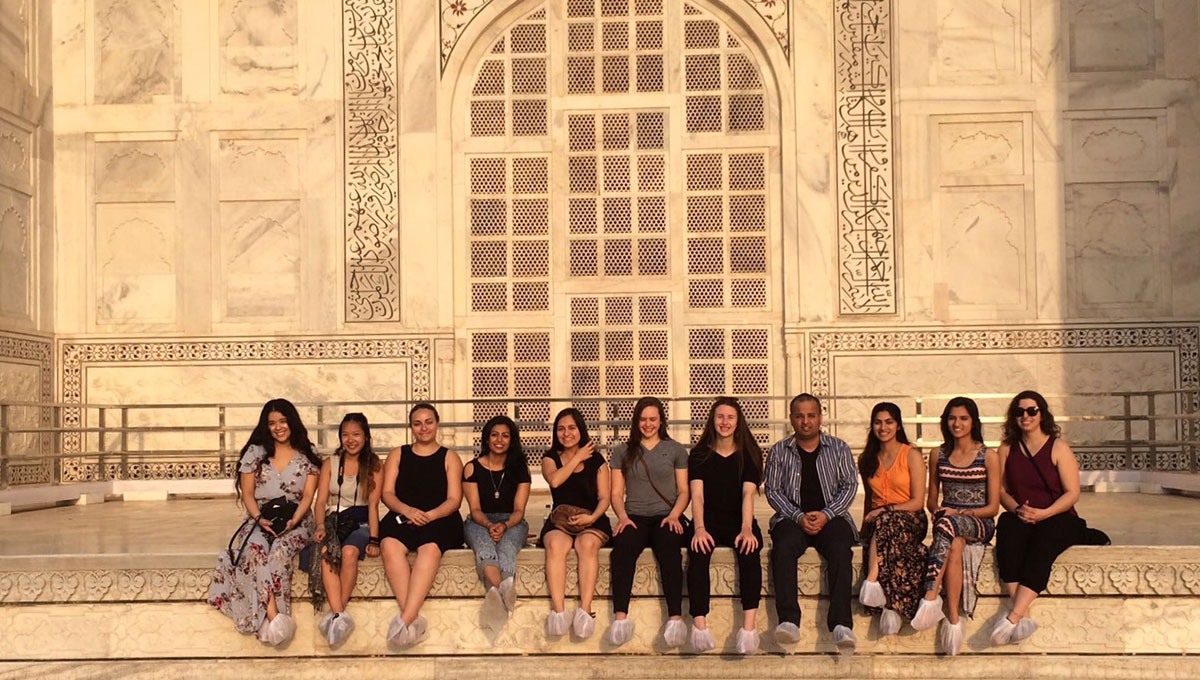
The India Study Tour will become an annual offering at Carleton, according to CICE Manager Harry Sharma, who accompanied the group and plans to organize a tour every year in early May. The main intent, he explains, is to expose Canadian students to the opportunities, challenges and competition that India presents.
“India can be a great partner for Canada,” Sharma says, “but if we don’t understand it, it could also be a great competitor.
“You can read books about India or watch documentaries and Bollywood movies, but you don’t really appreciate how complex it is unless you’re there in person.”
Learning from local subject matter experts in classroom sessions — including one focused on the psychology of Indian youth — was one of the strengths of the tour, says Sharma.
Another highlight was the industry visits, which showed Carleton students that advanced manufacturing is happening in India and the country is producing goods and services for global distribution.
And the interaction with Indian students, says Sharma, revealed a passion for social change that really resonated among the Canadian visitors.
Similar interactions will take place on the Carleton campus in June and July, when the CICE hosts four groups of Indian students for two- to four-week courses.
At the end of the India Study Tour, the Carleton students were asked four questions: Are you more likely now to consider work opportunities abroad? Are you more likely to work or study in India? Are you more likely to travel overseas? Would you recommend this type of experience to other Carleton students?
The answer to each question, from each student, was a resounding Yes.
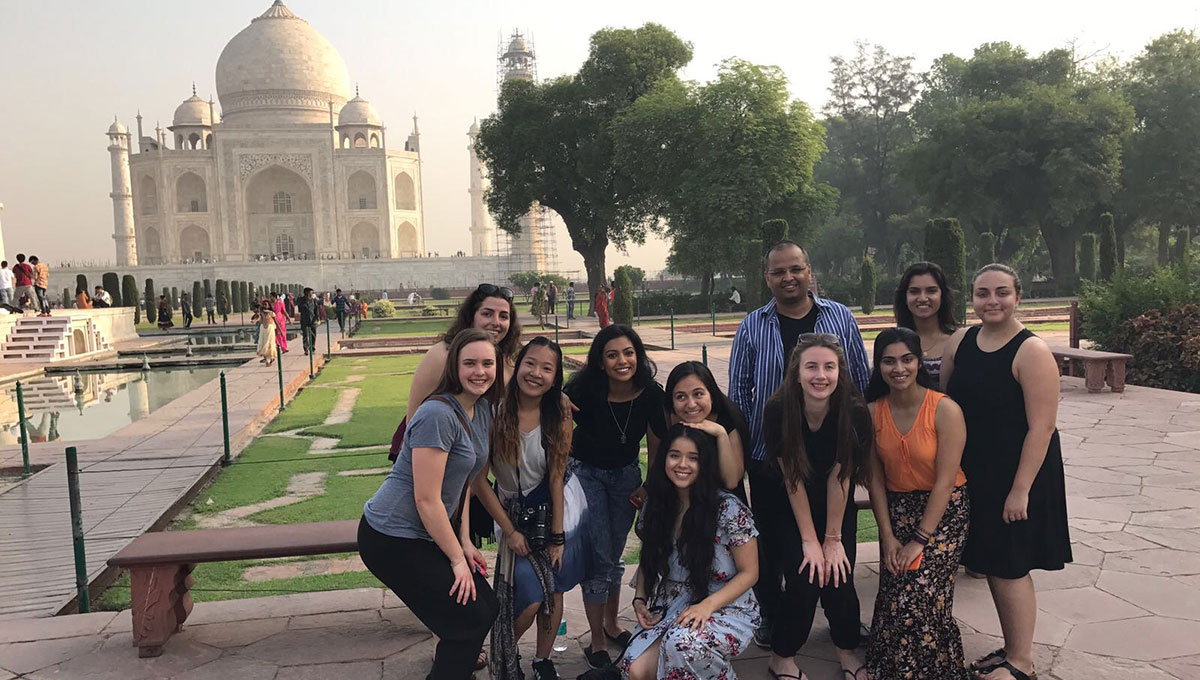
Friday, June 2, 2017 in International, Student Experience
Share: Twitter, Facebook
